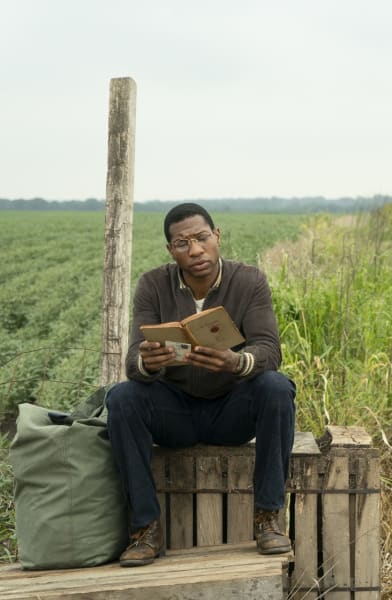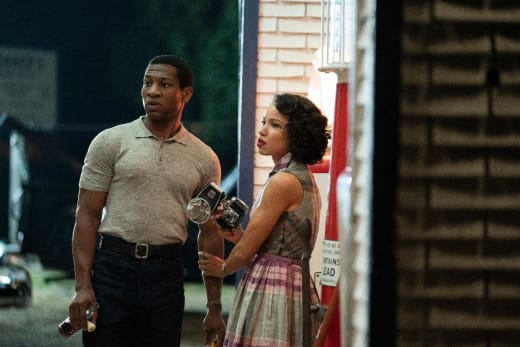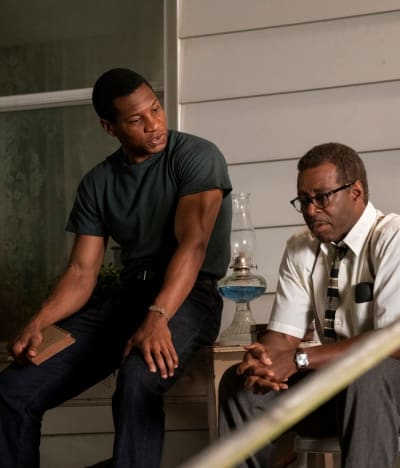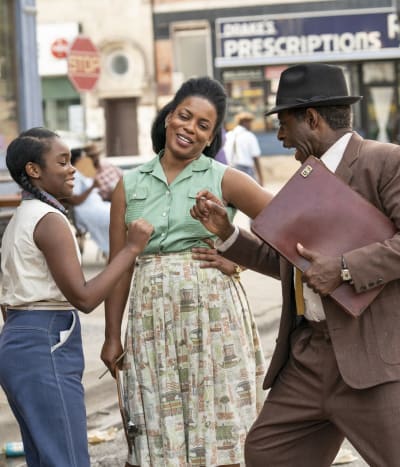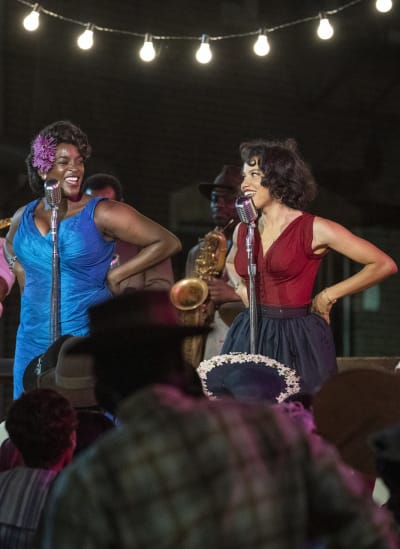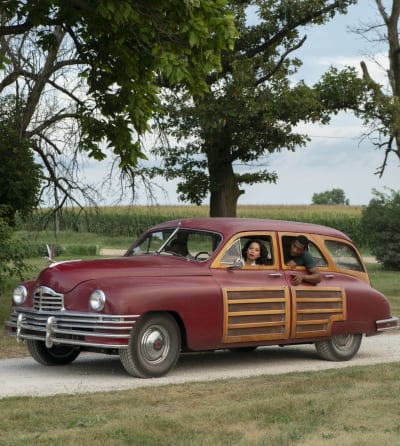The real challenge with this series will be identifying the true monsters.
What appeared to be a simple missing-person case was introduced on Lovecraft Country Season 1 Episode 1.
But there’s nothing simple about the journey taken by Atticus “TIc” Freeman, his uncle George Freeman, and his childhood friend Letitia “Leti” Lewis across the eastern half of 1950s America.
Misha Green (Underground) is the showrunner, writer, director, and executive producer for Lovecraft Country, while Jordan Peele (The Twilight Zone) and J.J. Abrams also serve as executive producers.
With such firepower behind the camera, this timely adaptation of the Matt Ruff novel effectively takes aim at the systematic racism, which sadly still exists in this country more than a half-century later.
Tic is a fan of pulp fiction but not particularly of the racist horror writer H.P. Lovecraft, for whom the novel and production is named.
The title refers to Lovecraft’s native New England, which still falls short on the enlightenment front even today.
Green declared her viewpoint right off the bat, so to speak, as Jackie Robinson vanquishes Lovecraft’s elder god Cthulhu with a mighty swing in Tic’s dream while he rode on a bus from where he was stationed in the Jim Crow South to his home on the South Side of Chicago.
Subtle, no, but dazzling and intoxicating. Green set the tone for the battle against prejudice that was to follow.
Tic, played by Jonathan Majors, is the ideal hero for this production. A veteran who has seen the horrors of the Korean War, he wasn’t intimidated by a few crackers with rifles, even those with badges.
Tic was a man with a mystery to solve, as his father, Montrose, with whom Tic has a contentious relationship, has disappeared while looking into the ancestry of Tic’s mother.
Tic may have even gone AWOL to do so.
But how else was Tic to mend fences with the father who couldn’t understand why he would volunteer to serve a country that hates his people?
Besides, fan of escapist fiction that he was, Tic was more than a little curious about what Montrose had discovered about his mother’s legacy.
Maybe he was like Burroughs’ John Carter and could gain royalty through valor.
Tic was determined to drive east to find a town that no longer seemed to exist. So Uncle George made up an excuse to go with him, to save him from his impulses (like driving through half the country with no clear destination in sight).
George was the father Tic wished he’d gotten, and had a sense of whimsy that the academic Montrose lacked.
But, unlike Tic, George was the ultimate realist. Why else would he publish “The Safe Negro Travel Guide,” to help other blacks be aware of what to avoid when journeying around the U.S.?
Then there was Leti, the wild card of this traveling trio. Listening to her siblings Ruby and Marvin, it was clear that Leti was the black sheep of the Lewis family.
The “why” hasn’t been explained yet.
She seemed to fancy herself as a photographer. It was hinted that she was involved in some sort of civil-rights activity. Or was she still trying to find herself?
Leti appeared taken by how buff her childhood playmate Tic had become, and vice versa. Maybe between the horrors, a little romance might bloom.
Whatever the case, a trip East gave her time to ponder what’s next.
Unfortunately, much of what came next was racist rednecks and monsters, if that’s not redundant.
Tic has seen man’s inhumanity to man in battle. George has seen his share of trouble during his travels and has two bad knees to show for it. No wonder he wanted to keep his wife Hippolyta off the road.
Surprisingly, Leti was properly jaded as well. What had she encountered in her travels?
If they needed any reminder of how horrible people can be to each other, their trip through the Midwest took care of that, as they ran into racists at every turn.
Even veteran traveler George could be naive as that scene at the supposedly safe diner in Simmonsville proved. Maybe asking rather than assuming would have prevented them from being run out of town.
But once the trio arrived in Devon County, things got strange, and we were reminded that Lovecraft Country is a horror series, complete with bug-eyed special-effects monsters, blood, and gore.
Yup, just when our heroes were at the mercy of the racist cops, along comes some shadowy creature to cut down the police.
Then came the appropriate chaos, screaming, and violence.
Thanks to George’s quick thinking, Leti’s fast running, and a boatload of flares, the trio survived to see another dawn.
Now that they somehow stumbled onto the road to Ardham, the fun begins, as this bloody threesome was welcomed into what appeared to be an English castle. Huh?
Arriving as it does during a time of racial unrest, Lovecraft Country seems particularly well-timed.
But, frankly, its message would resound not just during this period of Trumpist division but also anytime since the Emancipation Proclamation.
It pricks at the oft-times well-hidden American conscience, which is a worthy accomplishment.
It’s also a lot of spooky fun, promising more to come.
To revisit this premiere, watch Lovecraft Country online.
Which of the characters do you enjoy most?
What are you enjoying most, the horror or the message?
For those who haven’t read the novel, what is going on at Ardham?
Comment below.
Dale McGarrigle is a staff writer for TV Fanatic. Follow him on Twitter.

